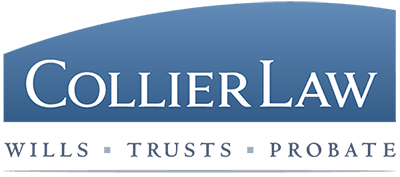Protecting Retirement Accounts After the SECURE Act
On December 20, 2019, President Trump signed the Setting Every Community Up for Retirement Enhancement Act (SECURE Act). The SECURE Act, which became effective January 1, 2020, is the most impactful legislation affecting retirement accounts in decades. The SECURE Act has several positive changes: It increases the required beginning date (RBD) for required minimum distributions (RMDs) from your individual retirement accounts from 70 ½ to 72 years of age, and it eliminates the age restriction for contributions to qualified retirement accounts. However, perhaps the most significant change will affect the beneficiaries of your retirement accounts: The SECURE Act requires most designated beneficiaries to withdraw the entire balance of an inherited retirement account within ten years of the account owner’s death.
The SECURE Act does provide a few exceptions to this new mandatory ten-year withdrawal rule: spouses, beneficiaries who are not more than ten years younger than the account owner, the account owner’s children who have not reached the “age of majority,” disabled individuals, and chronically ill individuals. However, proper analysis of your estate planning goals and planning for your intended beneficiaries’ circumstances are imperative to ensure your goals are accomplished and your beneficiaries are properly planned for.
Under the old law, beneficiaries of inherited retirement accounts could take distributions over their individual life expectancy. Under the SECURE Act, the shorter ten-year time frame for taking distributions will result in the acceleration of income tax due. This may cause your beneficiaries to be bumped into a higher income tax bracket, thus receiving less of the funds contained in the retirement account than you may have originally anticipated.
Your estate planning goals likely include more than just tax considerations. You might be concerned with protecting a beneficiary’s inheritance from their creditors, future lawsuits, or a divorcing spouse. In order to protect your hard-earned retirement account and the ones you love, it is critical to act now.
Create a Standalone Retirement Trust (SRT)
For most Americans, a retirement account is the largest asset they will own when they pass away. Your family may benefit from you creating a trust to handle your retirement accounts. While many accounts offer simple beneficiary designation forms that allow you to name an individual or charity to receive funds when you pass away, this form alone does not take into consideration your estate planning goals and the unique circumstances of your beneficiary. A trust is a great tool to address the mandatory ten-year withdrawal rule under the new Act, providing continued protection of a beneficiary’s inheritance.
Qualified retirement plans do not fit neatly within the structure created by your Revocable Living Trust or Will. How can you protect retirement plans upon death from the bankruptcy trustees, creditors, or divorce courts of your children or beneficiaries? And how can you protect retirement plan assets from the poor choices of your beneficiaries themselves and ensure that the money will not all be frivolously spent within a few years of your passing?
 You should consider using a Standalone Retirement Trust (SRT) as the beneficiary of retirement plan assets. Under IRS Treasury Regulations, an SRT that meets certain requirements may be considered a “see-through trust.” Such a trust would be considered an eligible designated beneficiary or designated beneficiary depending on the individual beneficiary’s status. The SRT serves as a gatekeeper for the proceeds of the retirement plan. The Trustee protects the retirement account principal from claims of bankruptcy trustees, divorcing spouses, and creditors of the beneficiaries. The SRT can either be set up to pay the minimum distributions directly to an Eligible Designated Beneficiary or accumulate those distributions in a protected trust for a Designated Beneficiary. In the event of an emergency, there is a safety mechanism in place to allow the Trustee to release additional funds to the beneficiary.
You should consider using a Standalone Retirement Trust (SRT) as the beneficiary of retirement plan assets. Under IRS Treasury Regulations, an SRT that meets certain requirements may be considered a “see-through trust.” Such a trust would be considered an eligible designated beneficiary or designated beneficiary depending on the individual beneficiary’s status. The SRT serves as a gatekeeper for the proceeds of the retirement plan. The Trustee protects the retirement account principal from claims of bankruptcy trustees, divorcing spouses, and creditors of the beneficiaries. The SRT can either be set up to pay the minimum distributions directly to an Eligible Designated Beneficiary or accumulate those distributions in a protected trust for a Designated Beneficiary. In the event of an emergency, there is a safety mechanism in place to allow the Trustee to release additional funds to the beneficiary.
An SRT can be used for estate tax planning for a married couple. If you live in a state with estate tax, such as Oregon, you may need to use retirement assets to fund exempt shares for a deceased spouse. If so, you do not want the retirement account to transfer to the surviving spouse directly upon death. Such a transfer would increase the estate tax liability for the surviving spouse. With an SRT in place, the surviving spouse can enjoy the benefits of the retirement account and still use the retirement account to fund the exempt share of the deceased spouse to save estate taxes.
Review Intended Beneficiaries
With the changes to the laws surrounding retirement accounts, now is a great time to review and confirm your retirement account information. Whichever estate planning strategy is appropriate for you, it is important that your beneficiary designations are filled out correctly. If your intention is for the retirement account to go into a trust for a beneficiary, the trust must be properly named as the primary beneficiary. If you want the primary beneficiary to be an individual, the individual must be named. Ensure you have listed contingent beneficiaries as well.
If you have recently divorced or married, you will need to ensure the appropriate changes are made because at your death, in many cases, the plan administrator will distribute the account funds to the beneficiary listed, regardless of your relationship with the beneficiary or what your ultimate wishes might have been.
Other Strategies
This new law may be changing the way we think about retirement accounts. If you are charitably inclined, now may be the perfect time to review your planning and possibly use your retirement account to fulfill these charitable desires. If you are concerned about the amount of money available to your beneficiaries and the impact that the accelerated income tax may have on the ultimate amount, you can explore different strategies with your financial and tax advisors to infuse your estate with additional cash upon your death.
Your retirement assets are an important part of your estate and may need some attention to fit into your broader goals. Now is a good time to contact an experienced estate planning attorney to discuss your retirement accounts.
© Collier Law 2021.
About the Author
Ryan W. Collier is an Estate Planning and Probate attorney in Salem, Oregon and an Adjunct Professor of Law at Willamette University College of Law teaching Will and Trust Drafting. Ryan is licensed to practice law in both Washington and Oregon. He is a graduate of the University of Puget Sound and Willamette University College of Law. His practice emphasizes advising clients on estate planning, probate, and trust administration.

